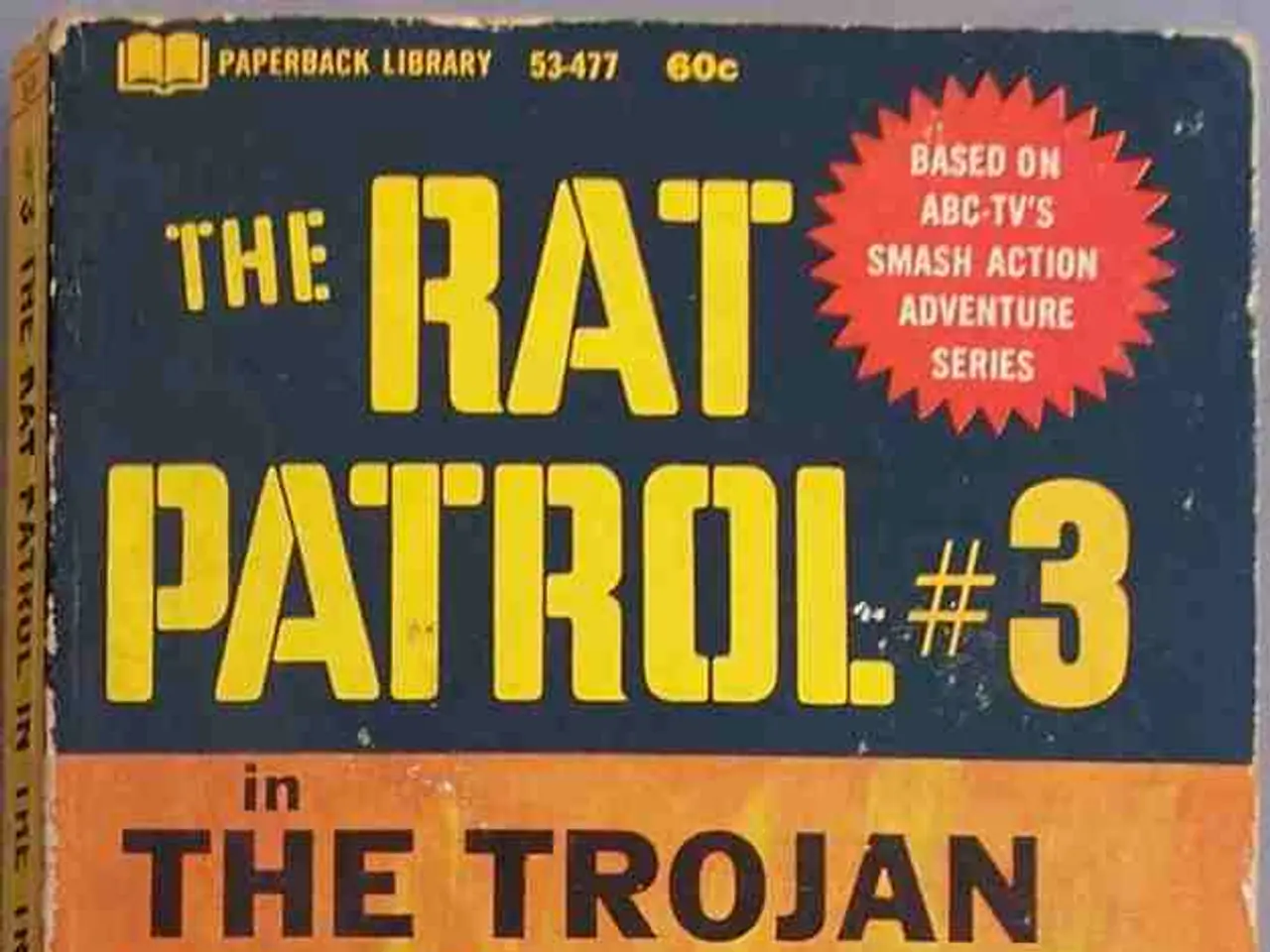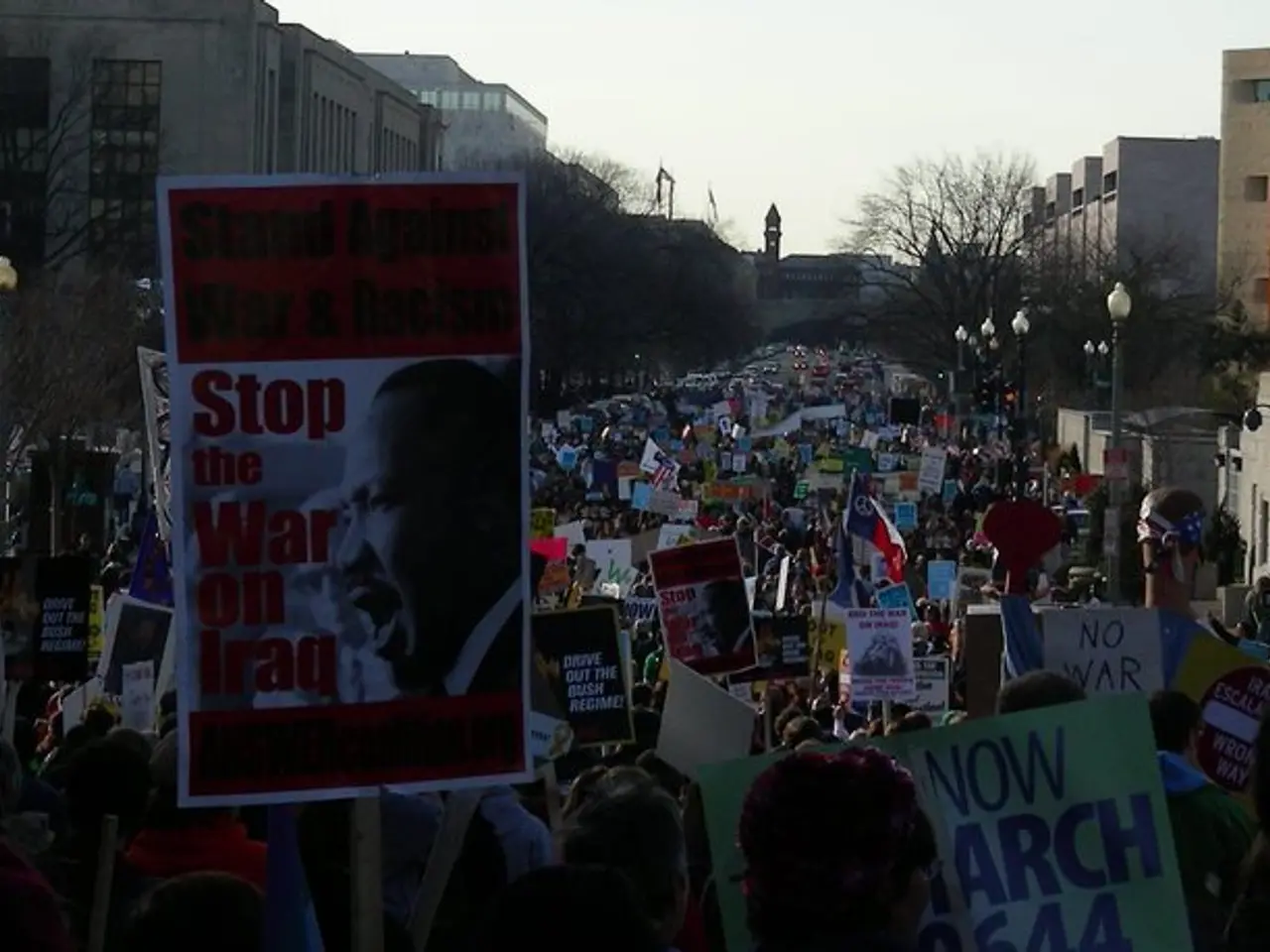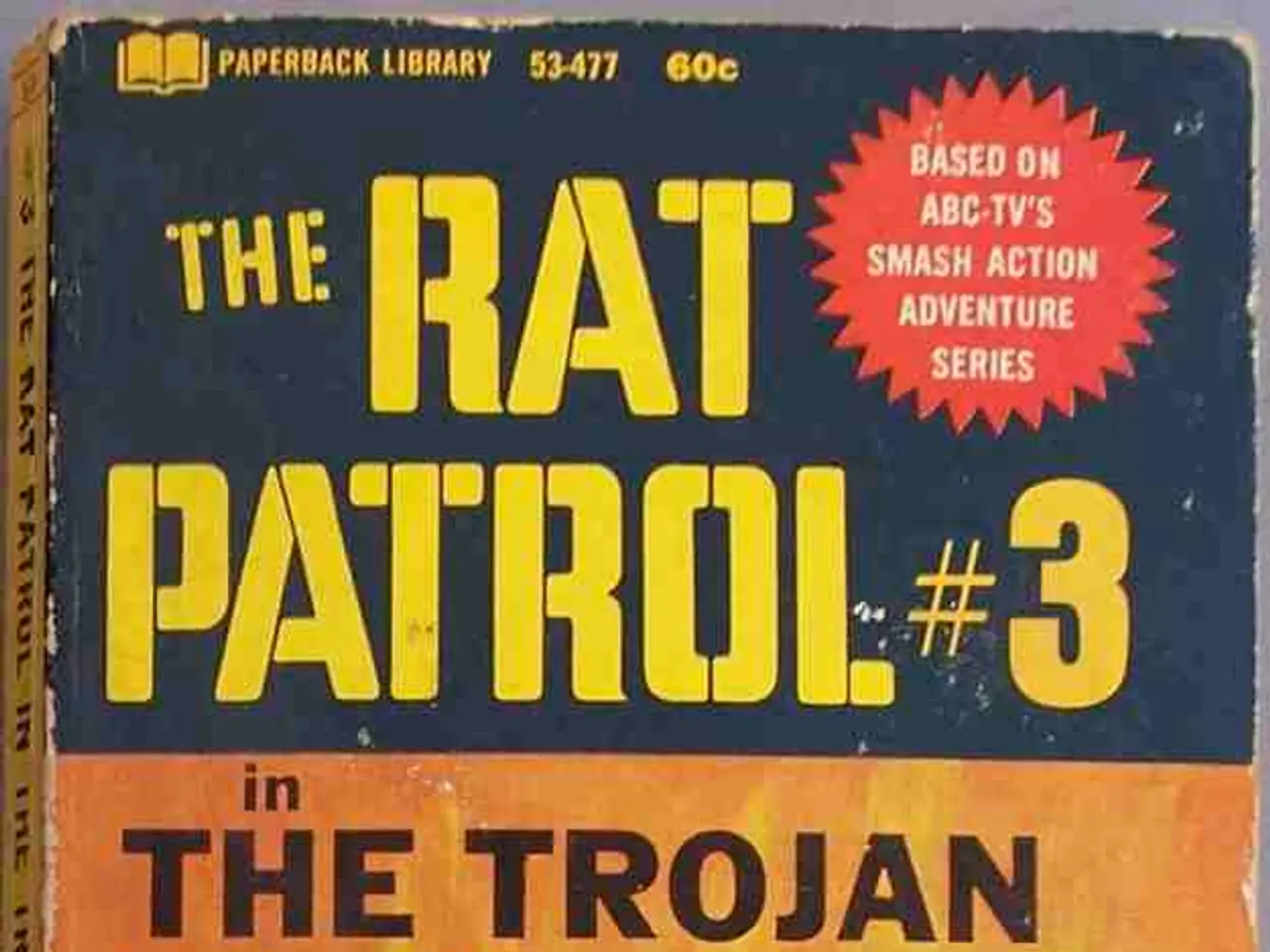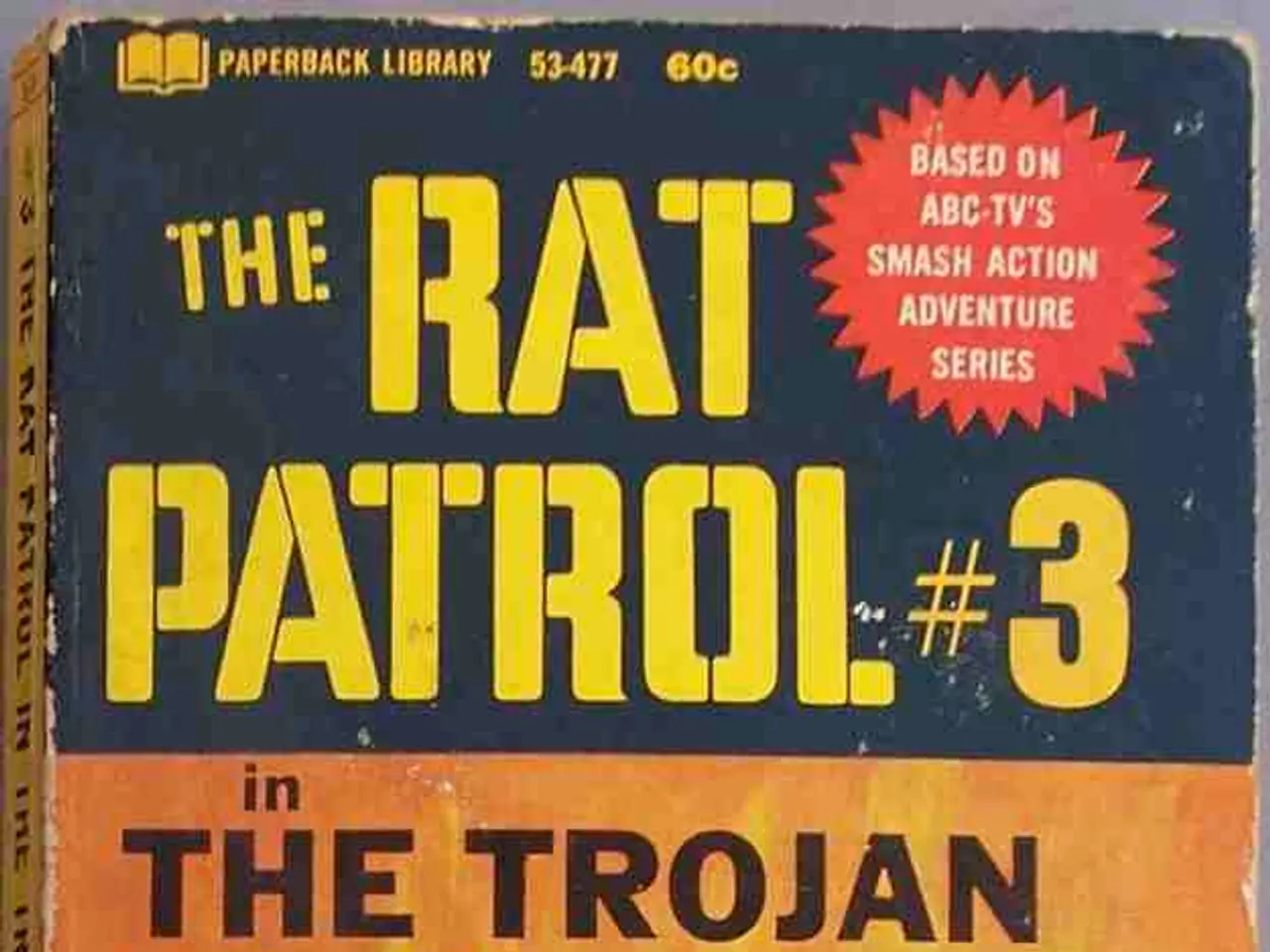The West: A Legacy of Unity and a Beacon of Democracy
West's Tension with Iran Intensifies: Diverging Paths and Disagreements
By Chris Patten
Over the centuries, "The West" has taken on a life of its own, symbolizing not just a geographical location but a cultural and historical pantheon. Born from the seeds of ancient Greece, the Roman Empire, and the European Renaissance, the concept of "The West" has evolved to encompass the ideals of political philosophy, exploration, and discovery.
However, in the aftermath of World War II, the term began to take on a more defined political and security character. Prior to this, Europe and its allies were defined not only by their shared ideals but also by their opposition to the Soviet Union.
Contrary to the misinformed claims of some world leaders, the EU was never intended to "screw" the US. Instead, Europe was eager for US involvement to prevent another conflict, as it had little choice but to thrust itself into the world's political arena once again. To prevent such a scenario, European leaders urged the US to maintain its presence on the continent, acting as a bulwark against the expanding Soviet Union.
In response, the US championed greater economic and political integration among its European allies, giving rise to the European Coal and Steel Community and, eventually, the European Common Market. These initiatives were seen as vital in ensuring long-term peace and prosperity among the transatlantic allies and preventing the continent from falling into trade wars and protectionist policies.
Together, the US and an increasingly interconnected Europe laid the foundation for the modern concept of "The West" – a group of like-minded, democratic nations united by a strong commitment to multilateral cooperation.
The post-war order was underpinned by US leadership as the world's dominant economic and military power. As the Soviet Union disintegrated, its former communist states transformed into market-oriented democracies, thanks in large part to Western unity and resolve.
Unfortunately, the US has relinquished the leadership role it once embraced, with President Donald Trump dismantling the international order through constant attacks on institutions and values he neither comprehends nor respects. Despite his best efforts to undermine the liberal democratic order, the US' former allies must confront a stark reality: the United States is no longer a reliable partner.
Just like Trump's infamous confrontation with Ukrainian President Volodymyr Zelenskiy in February, the recent G7 summit serves as a tooth-grinding reminder of how out of touch the current administration is with the global community. Trump's disregard for the liberal democratic order has driven a wedge between the US and its traditional allies. To make matters worse, he has displayed a distinct lack of concern for democratic norms and the rule of law, evoking comparisons to two of history's most infamous authoritarian leaders.
As Trump continues to dismantle the international order, the responsibility falls to Western democracies to uphold the values they have long held dear. Cooperation and unity will be far more effective in influencing and encouraging Iran to adopt a more constructive, peaceful role on the global stage than brash, aggressive actions that only serve to inflame tensions.
To be sure, Iran's standing as a repressive, dangerous regime is partially the result of grave errors made by Western nations in dealing with the country over the past 70 years. The US-backed overthrow of Iran's first democratically elected government in 1953 stands as a shining example of such blunders. The question now is whether Trump's decision to bomb Iran has exacerbated these mistakes and drawn an already divided West into yet another Center Eastern conflict.
In conclusion, the EU and NATO were established with the primary objective of preventing further devastating conflicts and fostering a culture of peace and cooperation among democratic nations. Today, these unions remain essential for maintaining a liberal international order and upholding democratic governance around the world. As the US abdicates its role as a moral compass, Western democracies must step up and lead by example, working together to secure lasting peace and stability for generations to come.
Chris Patten, the last British governor of Hong Kong and a former EU commissioner for external affairs, is a former chancellor of the University of Oxford and the author of The Hong Kong Diaries.
Copyright: Project Syndicate
Fascinating Facts about the EU and NATO
- The Schuman Declaration of 1950 proposed pooling coal and steel production among France, West Germany, Italy, Belgium, the Netherlands, and Luxembourg. This coalition served as the foundation for the European Coal and Steel Community and, eventually, the European Union.
- The European Coal and Steel Community fostered economic interdependence among member states, making war between them "not merely unthinkable but materially impossible."
- The Treaty of Maastricht in 1992 established the European Union (EU) and defined its institutions, including the European Parliament, European Council, and European Commission. The treaty also introduced the Euro, a common currency now used by 19 EU member states.
- The Treaty of Lisbon in 2009 further strengthened the EU's foreign and security policies, streamlined its decision-making process, and enshrined human rights and the rule of law as core principles of the union.
- NATO (North Atlantic Treaty Organization), formed in 1949, comprised 12 countries: Belgium, Canada, Denmark, France, Iceland, Italy, Luxembourg, the Netherlands, Norway, Portugal, the United Kingdom, and the United States. It has since expanded to include 30 member states, fostering international cooperation in security, defense, and diplomacy.
- Since its establishment, NATO has served as a symbol of peace and stability in the North Atlantic region, maintaining a deterrent presence against external threats and working to uphold democratic values and human rights around the world.
- The current administration's disregard for policy and legislation, particularly in regards to war and conflicts, has driven a wedge between the US and its traditional allies, leading Western democracies to question the US's reliability as a partner in upholding the liberal democratic order.
- In the face of the US's abdication of its role as a moral compass, European leaders, in line with politics and general news, are called upon to step up and lead by example, working together to secure lasting peace and stability for future generations by prioritizing multilateral cooperation and maintaining a strong commitment to multilateral institutions like the EU and NATO.








